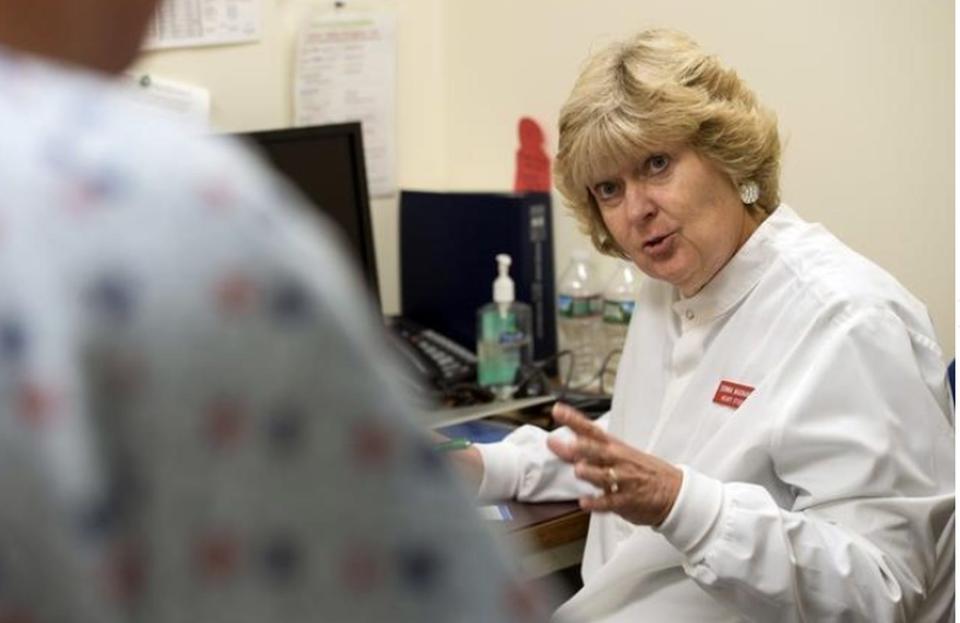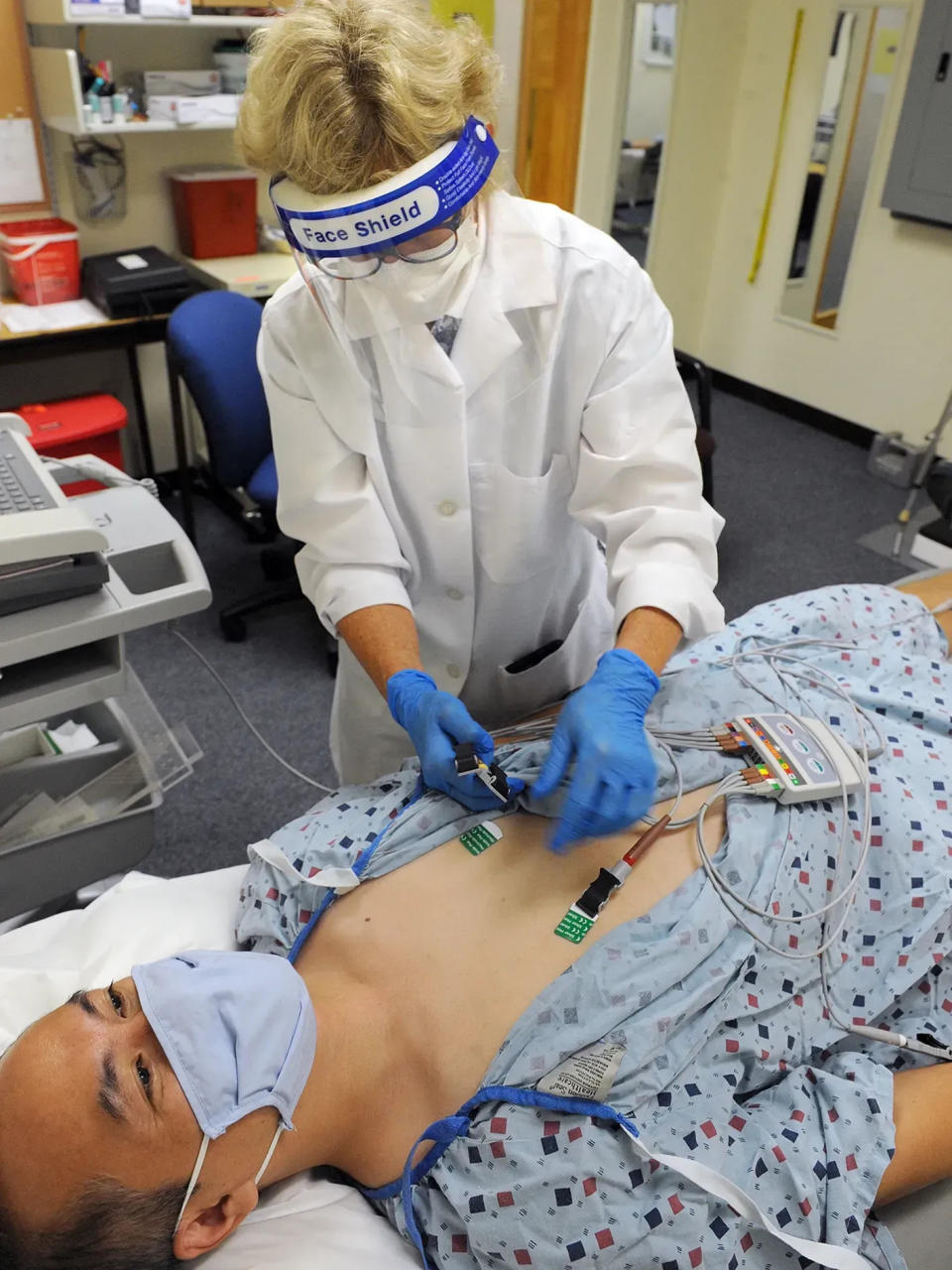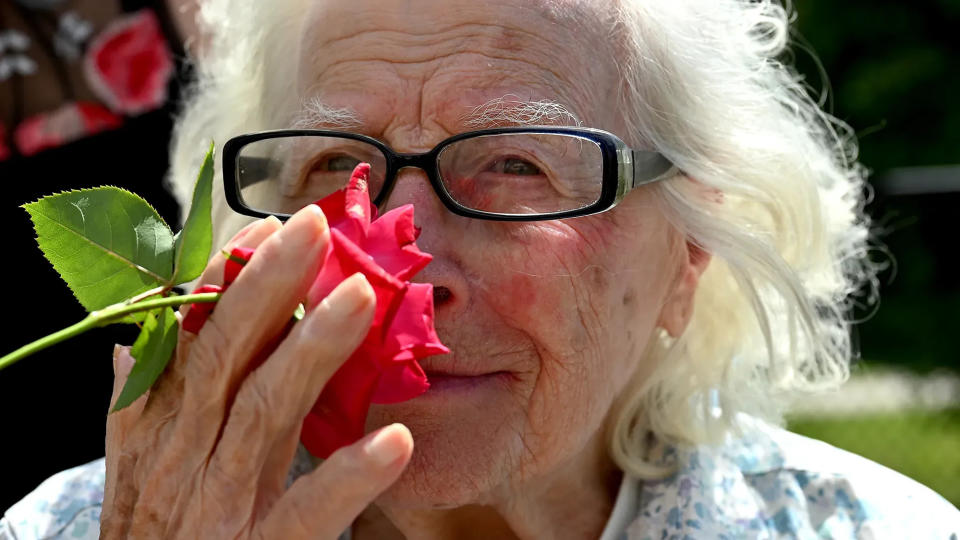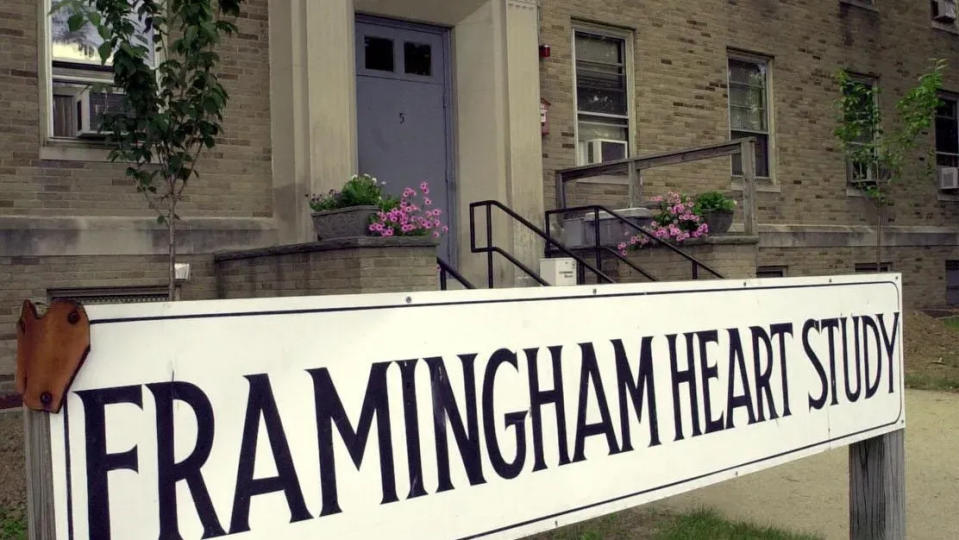Framingham Heart Study branching out to study other body parts. What they're studying
FRAMINGHAM — The Framingham Heart Study turns 75 this month, and with it comes a multimillion-dollar grant and commemoration.
Boston University researchers recently landed a five-year $7.2 million grant to continue stroke surveillance research in Framingham Heart Study participants and to expand the program to study cognitive impacts after strokes. The funding comes from the National Institute of Neurological Disorders and Stroke, according to a BU news release.
Dr. Jose Rafael Romero, an associate professor of neurology at BU's Chobanian & Avedisian School of Medicine, is excited about the funding.
"It's a great grant," he said. "It's a continuation of 38 years of work... The grant will allow is to study cognitive aspects after a stroke."

'Always willing to listen': Framingham Heart Study's Greta Splansky has offered skill, enthusiasm for 40 years
Romero has been an investigator for the Framingham Heart Study since 2006. The study, the longest of its kind in the country, traces generations of Framingham families, beginning with a group of 5,209 men and women who were enlisted as study participants in 1948 and continuing with their children and grandchildren.
Framingham Heart Study has led to big discoveries
The effort has produced significant discoveries, including a connection between lifestyle choices and the risk of heart attack and stroke. Among its findings, the Framingham Heart Study documented smoking’s contribution to heart disease risk in 1960; established a link between obesity and heart disease in 1967; and showed a heightened risk of stroke from high blood pressure in 1970.
Romero told the Daily News he's honored and proud to be a part of the renowned study. To him, the key word is the middle one: heart.
"People have given their lives for this study," he said. "I want to thank to the participants, the fantastic people who are advancing research and clinical care."

Romero, along with Dr. Hugo Javier Aparicio and Dr. Sudha Seshadri, will use the $7.2 million to leverage Framingham Heart Study resources to work toward a better understanding of post-stroke cognitive impairment and the relations of obesity and dyslipidemia — abnormally high levels of lipids (fats) in the blood — with post-stroke impairment.
Aparicio has been a researcher at the Framingham Heart Study since 2014. Seshadri has been a senior investigator at the study since 1998.
Framingham Heart Study inspired by FDR's death
The Framingham Heart Study was designed to better understand the disease that had killed President Franklin Delano Roosevelt in 1945.
Cardiovascular disease had become the leading cause of death in the United States by the late '40s, but little was known about how to prevent or treat it. To learn more, federal researchers decided to focus on one community, following families over time. Framingham was selected, with the first study group including 5,200 of its residents.
Over three generations, the Framingham Heart Study has changed how Americans and their doctors view heart disease and what to do about it. It confirmed the role high blood pressure, high cholesterol, blood sugar and smoking play in the development of heart disease, stroke and dementia among other ailments.

Triggered by a president's death: How one health study changed life in America forever
"It really is hard, as a cardiologist, or even as a physician to think of any area in cardiovascular disease where Framingham hasn't lent some insight," Dr. Thomas Wang, a cardiologist and chair of medicine at UT Southwestern Medical Center, told USA Today.
The study was "foundational" in identifying key risk factors for heart disease, added Dr. Vasan Ramachandran, founding dean of the University of Texas School of Public Health San Antonio and a former principal investigator of the Framingham Heart Study.
Boston University has led the research since 1971. The university receives federal funding to oversee the study. The National Heart, Lung and Blood Institute previously awarded the school an additional $38 million to sustain the project, which is now the nation’s longest running cohort study with longitudinal analysis of cardiovascular disease.
Looking toward the future, the most recently announced funding will go toward the post-stroke effects on cognitive abilities and exploring repurposing of available drug treatments. Researchers will collaborate with the Reasons for Geographic and Racial Differences in Stroke (REGARDS) and Atherosclerosis Risk in Communities (ARIC) studies as well.
Celebration planned for heart study anniversary
The Framingham Heart Study plans to hold an invite-only event to commemorate its 75th anniversary. It runs from 2-7 p.m. on Oct. 25 at Framingham Heart Study office, 73 Mt. Wayte Ave., and will allow participants to meet with researchers and learn what has come from their participation.
Next April, a second event is planned to formally thank participants for their assistance with 75 years of research.

The study's 75th anniversary comes with some sad news, as its last remaining original participant, Agnes DeCenzo, died on Sept. 25. She was 105.
DeCenzo, who spent her last few years at Waterview Lodge Rehabilitation & Healthcare in Ashland, was 30 when she became part of the study's original cohort in 1948.
"She felt it was a duty," her daughter, Joanna Renzi-Ramey, told the Daily News during DeCenzo's 105th birthday party in February. Like many descendants of original participants, Renzi-Ramey went on to join the study herself.
This article originally appeared on MetroWest Daily News: Framingham Heart Study turns 75, awarded grant for stroke research

